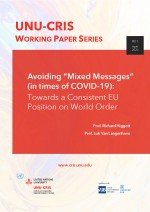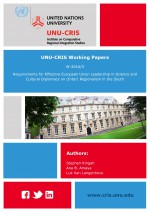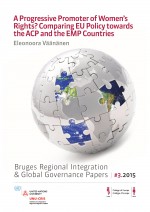Towards a Coherent Regional Institutional Landscape in the United Nations? Implications for Europe
This paper explores the recent attempt of the international community to develop greater consistency and coherence in the United Nations (UN) system, and the implications this may hold for the European integration movement. The paper identifies the postulated standards of policy coherence currently employed for international organisations, the delineation of regions (as these are informally understood in the UN), and the current locations of UN global and regional offices. The scope for reconfiguration of the UN regional institutional setting is explored. Prescriptively, the paper asks whether the delineation of ‘region’ is adequate for the current times, and whether a standardised definition of ‘region’ can feasibly be developed. Concluding that this is possible, the paper then explores the possible scenario for new regional hubs, including the co-location of regional offices that would meet the required reform in consistency and policy coherence for the UN. Within that context the paper considers the implications such changes might carry for Europe – for the region, for its various regional organisations, and for their relationship with the UN. The paper concludes by identifying the political and diplomatic process by which such institutional reform might be pursued.



